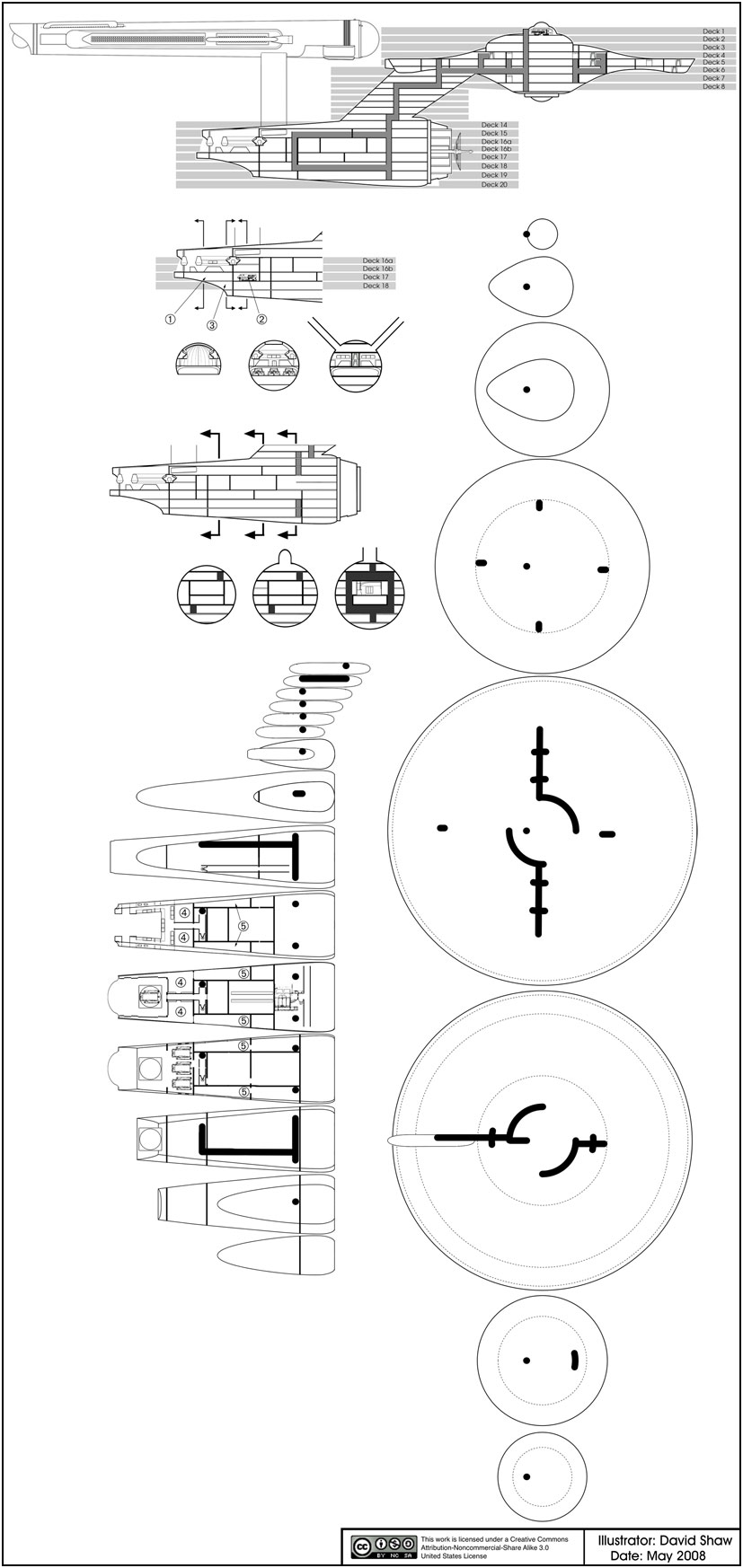Another factor to keep in mind when thinking about Star Trek's preproduction period is that Jefferies had a lot more to worry about than just the innards of the Enterprise.
I suspect that the process was sort of stop-n-start in the preproduction phase, since we first had the pilot, so some general work was done to get everything to an acceptable level at the pilot stage, then the waiting for the decision from the network, during which probably little to nothing was done (remember, most pilots never even see the light of day, even those few that actually sell, and especially back on those days, so why waste time working on the thing until you know the network's actually gonna buy the thing?), then we had the unpredented second pilot order, which enabled everyone to build upon what came before, then another down period while waiting to see if the show was gonna sell this time, then full blown preproduction from late '65 through early '66 to try and flesh things out to a point where they could live with it, with the understanding that, like any other show, it's still a work in progress (a nice way of saying they were making it up as they went along).
As stated, we're talking the era of Irwin Allen, so the consistency bar was set pretty low to begin with. Any level of consistency was noteworthy, and the fact that Star Trek holds up as well as it does after all this time is nothing short of miraculous.


